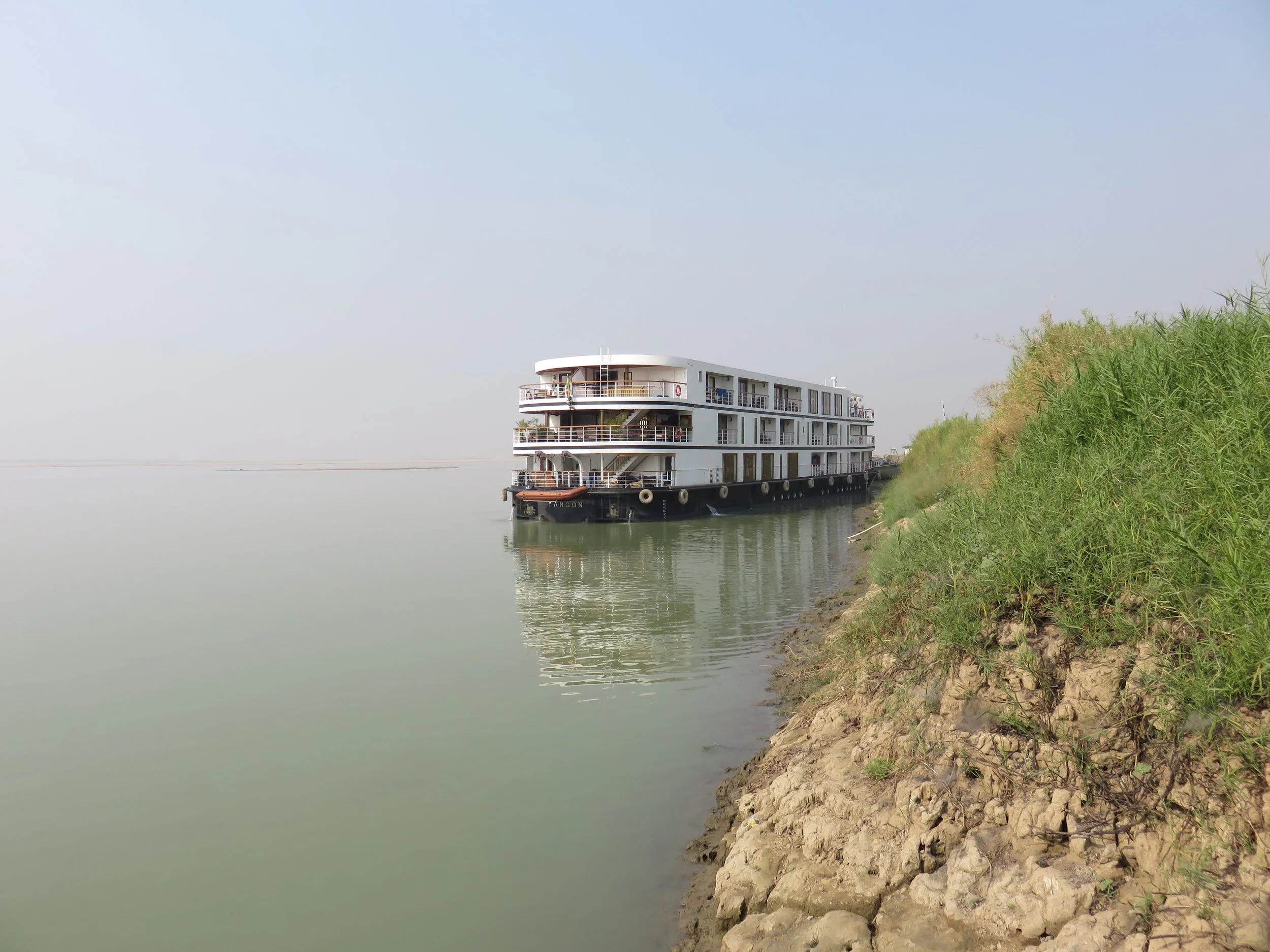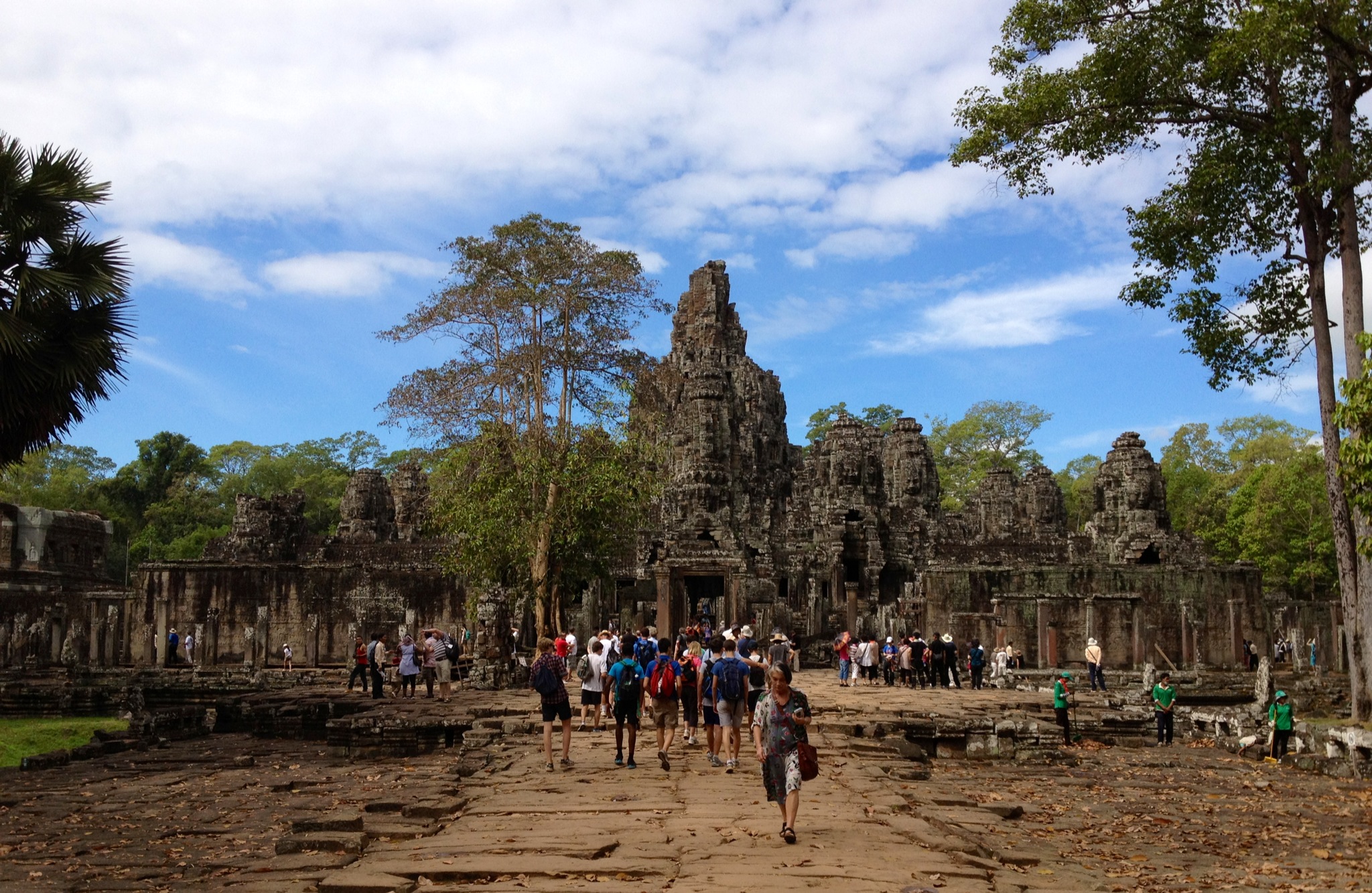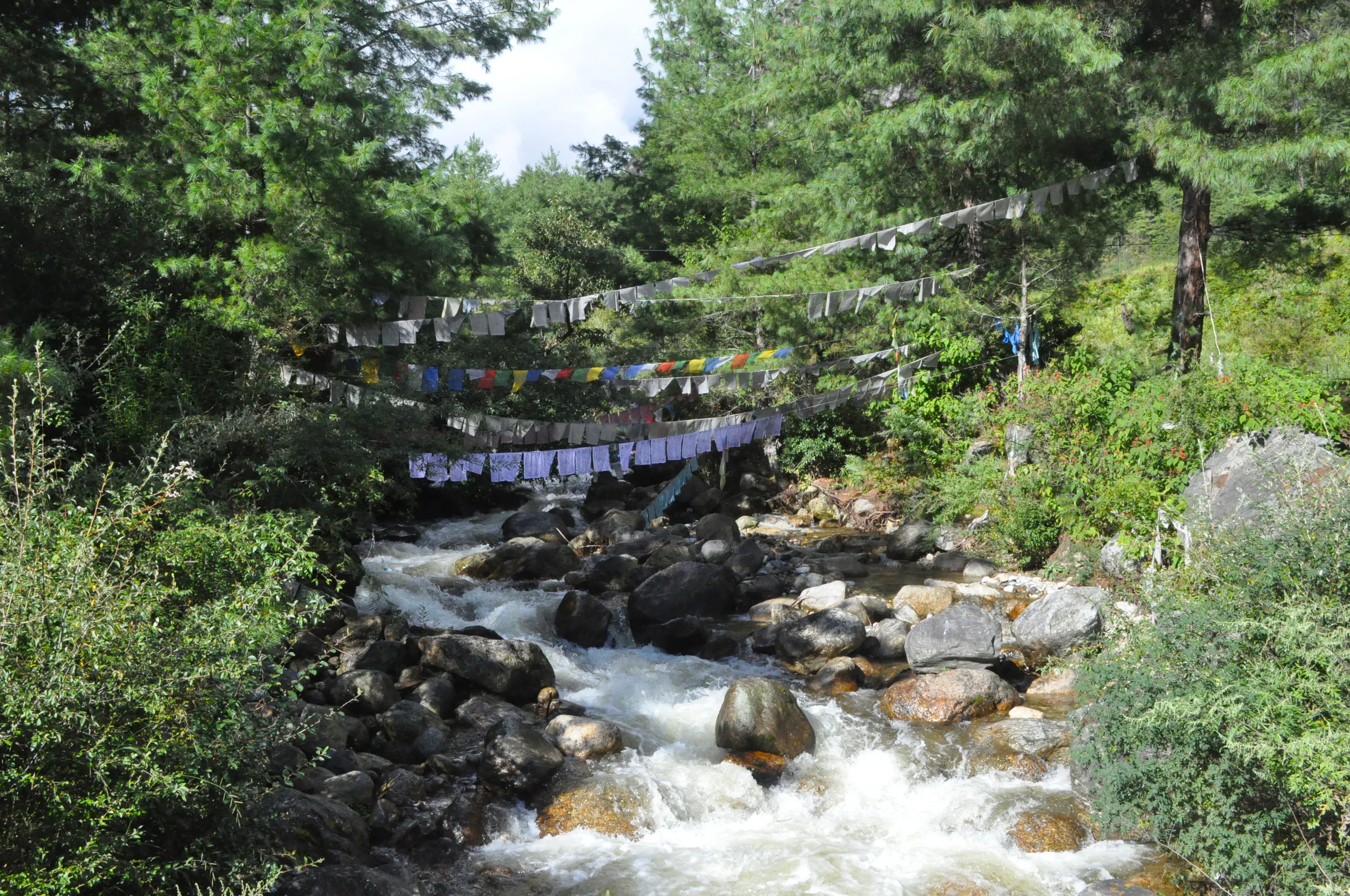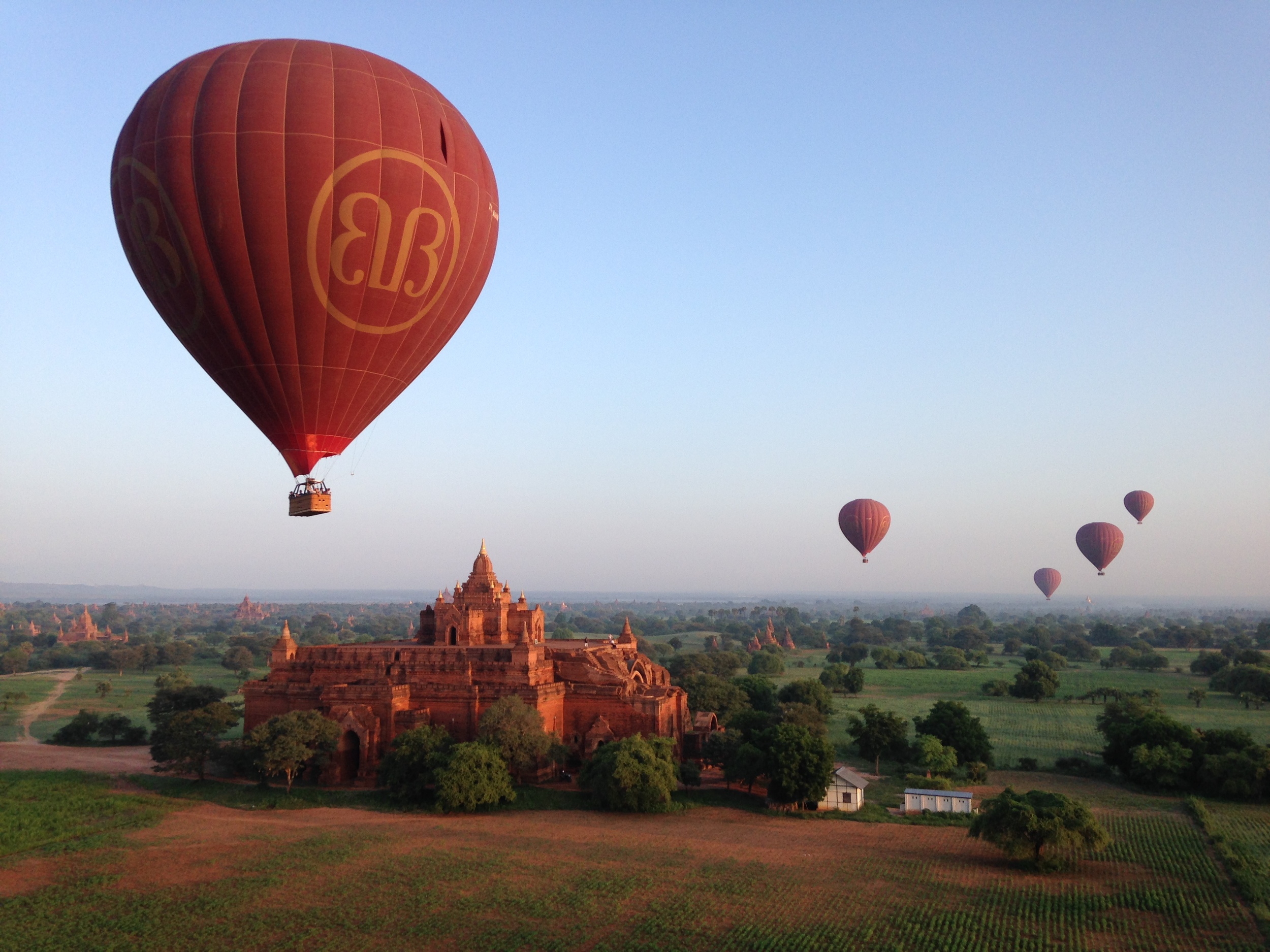Four great stations to add to any occasion.
The Power of Appreciation
Everyone is Flocking to this Incredible Locale, and so Should You!
Machu Picchu and Sigiriya. Twinzies?
Your Go-To Gadget for Stress-Free Travel
The Straights are Coming!
Gay Travel, Straight Travel: What’s the Difference?
Colombia – Easy on the Eyes
5 Exotic River Cruises
10 Spiritual Hikes to Feed your Soul
For most people, the word, “hiking” conjures images of trails through forest-covered mountains or even of barren desert. Traditional hiking can be a spiritual experience, because you are often alone in nature, and the peacefulness and beauty can be palpable. From our travels at Zoom Vacations, we have found several experiences that take hiking to whole different level, adding inspirational, spiritual dimensions to truly feed your soul.
1.Peru - Machu Picchu
Peru’s Inca Trail, from the Sacred Valley to Machu Picchu, is on every hiking enthusiast’s to do lists, and rightfully so. Rich in history, stunning views, and a sense of mysticism, there is truth behind the hype. The 45 km trail is most often covered in four days, and due to its popularity, is limited to 500 trekkers a day. Many alternative trails are available, from the Choquequirao Trek, which takes between 7-10 days, to a one-day trek for those with less time or experience. If trekking among the clouds in ancient Incan city isn’t enough, Intihuatana stone will surely stir you. When touched, the stone is said to awaken your senses and reverberate a mysterious energy full of positivity and spiritual awareness.
Spiritual tip: At the Machu Picchu site, acquire the ticket to Huayna Picchu as well, and make your way to the Temple of the Moon. It will take you about two hours to get there from the entrance to Huayna Picchu, and it is mostly downhill. Just remember, you will have to climb back up to exit. The Temple of the Moon is the least visited are of Machu Picchu, and you will likely have its carved caves all to yourself. Bring several bottles of water.
2.Bhutan – Tiger’s Nest
For a less mainstream trail, hikers may prefer a trip to one of the world’s most remote kingdoms: Bhutan. The mountain kingdom boasts a range of treks from day-hikes to 31-day Himalayan adventures. Pristine lakes and scenic mountains are among trek highlights. In addition to the natural beauty, a hike to Tiger’s Nest is sure to feed your soul. Built in 1692 as a meditation spot, the stunning monastery clings to a cliff 10,240 ft over the Paro Valley. Bhutan offers a remote, but unparalleled hiking experience for those eager to explore one of the old world’s last few strongholds, as yet unspoiled by civilization.
Spiritual tip: There is a small bench in front of the monastery, overlooking the Himalayas. Sit there in peace, and gaze at the Buddhist prayer flags hanging on long strings between the mountains, carrying their prayers on gentle breezes.
3.South Africa – Table Mountain
Table Mountain - Cape Town, South Africa
Originally named “Hoerikwaggo” or “Mountain in the Sea” by the ancient Khoi and San people of southern Africa, Table Mountain is the country’s most photographed attraction. Once revered as sacred home to the god, Tsui, Table Mountain is a UNESCO World Heritage Site and National Park. The biodiversity of its trails rival tropical jungles and its views may convince you the mountain is supernatural after all. Novice hikers shouldn’t be intimidated by the 3,500-ft block of sandstone, as its many trails range in difficulty. Not to mention the cable car available for those not up for the climb.
Spiritual tip: Take the hike to the top of table mountain. Just take your time, and enjoy the experience as the wind roars past you on the trail.
4.China - Great Wall
Traipsing the Great Wall of China leaves hikers in awe of both the planet’s natural beauty and man’s power to influence landscapes. While some areas of the Wall are congested with tourists, hikers will find hours of solitude and self-reflection walking along the ‘wild’ sections of the 5,500 mile wall. Rugged and overgrown, the wild sections offer sweeping views of China’s countryside without the threat of being smacked in the head with a selfie stick.
Spiritual tip: Sit in one of the lesser visited towers, and see if you can focus on one tree in the distance. Listen to the sounds around you as you clear your thoughts of all but your breathing, the wind, and this sing tree.
5.Israel - Masada
Located in southern Israel, Masada is the famous site of the end of the First Jewish-roman war in 73CE. Masada is a historical mountain, once a fortified palace of Herod the Great and now a UNESCO World Heritage Site. The site and its history are deeply significant to the people of Israel. Many of the buildings have been restored, and a hike to the summit offers a unique glimpse into Israel’s tumultuous history and a truly awe-inspiring experience. The short but challenging “snake path” is a rewarding climb but can be substituted with a few bucks for a ride on the gondola. Mounted next to the lowest place on land (the Dead Sea) the 450 meter ascent actually only takes you 58 meters above sea level.
Spiritual tip: Read as much as you can about what happened at Masada, and as you mindfully ascend the trail, see if you can feel a oneness with those who have gone before you.
6.Rwanda – Volcanoes National Park
Volcanoes National Park, Rwanda
Gorilla trekking in Rwanda is a truly out-of-body experience. The photo opportunities are incredible, but there is really no way to capture the soul stirring experience. Coming face to face with one of eight hundred remaining mountain gorillas is an eye-opening reminder of our planet’s population of wild, rugged, and increasingly endangered cohabitants. Far more intimate than a zoo or safari encounter, you can see the very human movements and expressions of the gorillas who share some 98% of our DNA. As soon as you lock eyes with one of these majestic creatures, you will instantly see why we include this as one of our spiritual hikes. Trekking through Rwanda’s Volcanoes National Park is a blunt reminder of our vast similarities with those who look a little different, and how our actions can impact them even from the other side of the world.
Spiritual tip: Lock eyes with a mountain gorilla, and soften your face. Envelop yourself in as much peace as possible, and visualize sending love to this beautiful creature before you.
7.Japan – Fushimi Inari Shrine
Japan's Fushimi Inari Shrine, founded in 711CE, is the most sacred of the 40,000 shrines dedicated to Inari, the Shinto god of sake, rice, and prosperity. The hiking trail lies behind the shrine’s main grounds. There are two trails, each sheltered by thousands of orange Japanese gates called torii. The gates form a seemingly endless tunnel which opens after 2.6 miles to reveal the sacred Mount Inari. The spiritual history is complemented with modern amenities including restaurants serving traditional Japanese cuisine.
Spiritual tip: Stop at one of the smaller shrines in the mountain. Close your eyes and listen to the water trickling, and the wind blowing past you. Open your eyes and see if the orange torii appear even more magnificent to you.
Fushimi Inari Shrine, Japan
8.Jordan - Petra
You have probably seen photographs of Petra’s iconic Treasury monument. The iconic ruin is accessible through the Siq – the main entrance into the ancient city. The Siq’s narrow gorge opens to a wide valley that meanders through the desert city and eventually leads to The Treasury, a most impressive ruin carved into the pink rock walls. A one-hour hike from the Treasury is “The Monastery”. What is actually an ancient temple dating to around the first century BC, the Monastery is massive – the doorway itself is several stories high. This unforgettable trek is both spiritual and historical with an Indiana Jones feel.
Spiritual tip: Once at the top, and you are looking at the Monastery, reach down and grab a handful of sand. Slowly let the grains fall between your fingertips. Imagine that each grain you touch has been touched by thousands before you, and will become part of the story of the thousands who will come after you.
9.Indonesia – Ubud
A trek through Bali’s serene rice fields are typically enjoyed in a 2-4 hour hike. Indonesia’s mountainous landscape and distant forests provide a backdrop to the vast rice fields covering the countryside. Small shrines and temples, including the Taman Sari Temple add a spiritual component to the meditative trek.
Spiritual tip: Before setting off the day, stop at a store, restaurant, or even your hotel, and find one of the many offerings to the gods. Stop in reflection and appreciation for life itself. Set an intention for want you want to see today. Tell yourself, “I am aware”.
Angkor Wat, Cambodia
10.Cambodia – Angkor Wat
Angkor Wat is the largest religious monument in the world. Dating back to the 12th century the massive temple complex is a national treasure in Cambodia. Multi-day treks take hikers through rice paddies, villages, jungles, and ruins. Bhuddist or not, the Khmer temple architecture is sure to feed your yearning for a spiritual experience. The religious site, which has been celebrated by historian and archeologists for years, has just revealed large new sections of itself in a recent laser survey. The complex offers non-traditional hiking as visitors climb to new heights on its many temples. Buzzing with excitement and discovery, Angkor Wat will likely find itself on more and more itineraries in the future.
Spiritual tip: At the top of one of the temples, take a moment to see how far you can see. Then, see if you can see even farther. Turn around slowly and do this with different vantage points. Truly take in the magnitude of what lies below you and beyond. Allow yourself to feel the power and the joy of creation.
You’ve heard of Freakonomics. You may be familiar with Burgernomics. This is Beeronomics.
Travel: Your Weapon Against Fear
Top Five Gay Honeymoon Destinations
Japan Will Leave you Dazzled, not Lost in Translation
Ten Musicals That Encourage Bites From the Travel Bug
POTUS is Visiting Cuba for the First Time in 88 years, But What Does it All Mean?
Top 10 New Technologies That Make Traveling Easy
10 phrases to eliminate from your vocabulary in 2016
How to be a Good Group Traveler
India: Myth Versus Reality
Few places in the world are as misunderstood as India. It is a land that creates pretty strong negative reactions from people who have never stepped foot in the country, and even stronger positive ones from those who have. The following are the five biggest myths about India.
Myth #1: If I go to India, I will get sick.
Fact: We have led many trips to India, and not one of our travelers has ever gotten sick. Yes, one needs to be careful, as they do in many countries but Zoom Vacations selects only the safest hotels and restaurants for our travelers, and most of these venues have the own water filtration systems.
Myth # 2: There is just poverty everywhere.
Fact: One could easily travel to India and not see it. That being said, most of our travelers want a glimpse into all the realities of India, and we do pass by areas that one would consider impoverished. But, this is not the majority, and it is estimated that by 2016, 50% of the population will be middle class.
Myth #3: India is dirty.
Fact: India is also pristine and beautiful, depending on where you are, such as in Osian, where the air is beautifully fresh and not a piece of litter can be found.
Myth #4: India is not gay-friendly.
Fact: We just brought our gay group to India, and everyone from our guides to hotel staff knew we were gay. It was truly a non-issue. The straight men in India are very affectionate, by the way, and they can often be found walking around hand-in-hand or with their arms around one another.
Myth #5: Accommodations are just subpar.
Fact: This is the biggest myth, because the best hotels in the world are in India. These are hotels that are so elevated, that they can't just be called 5 star. They truly deserve their own rating category of 6 or 7 stars. Several of these hotels are former maharaja palaces, and it is the goal of the property and staff to make their guests feel like royalty.



























